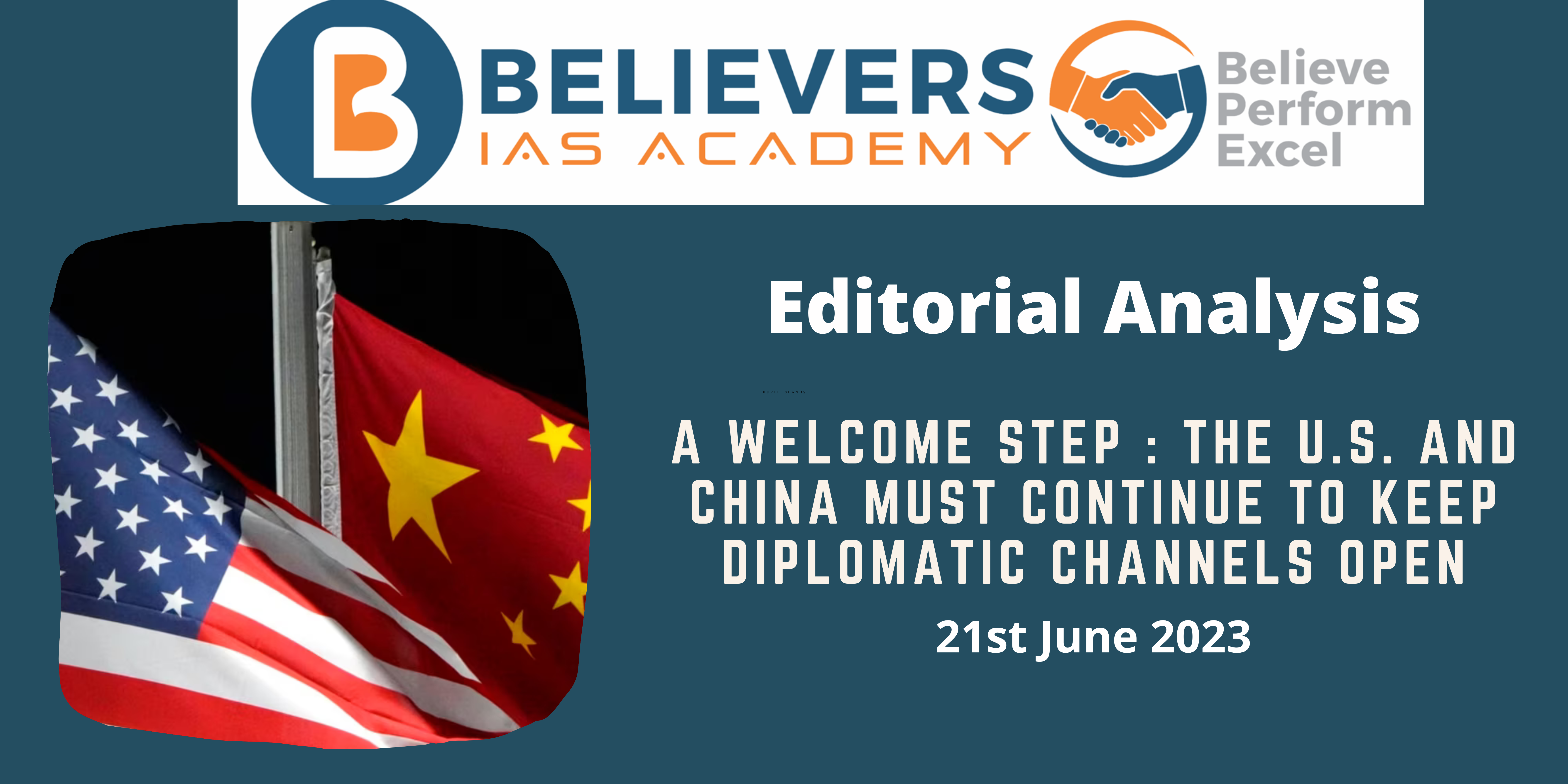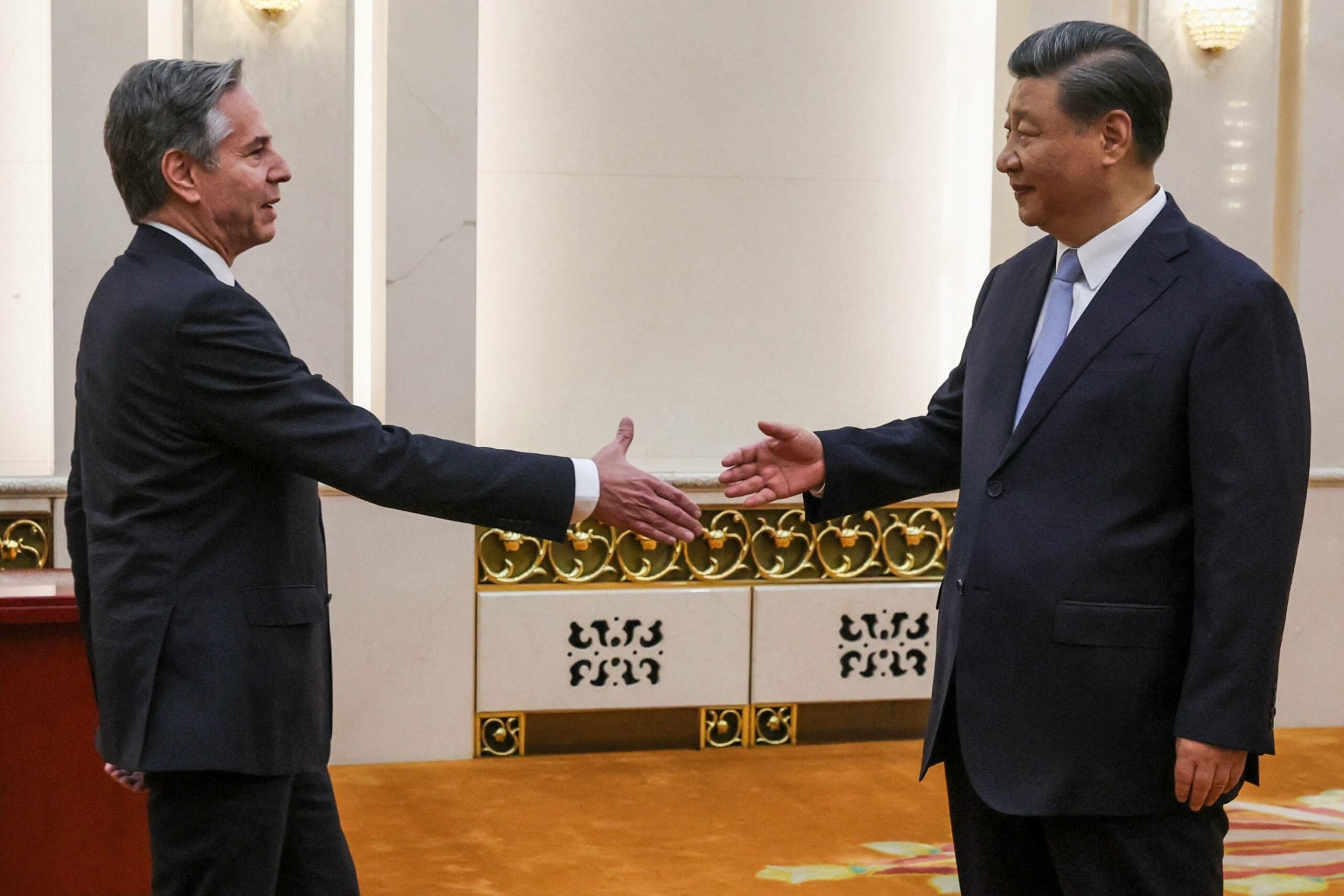A welcome step: The U.S. and China must continue to keep diplomatic channels open
Context:
The editorial discusses the recent visit of U.S. Secretary of State Antony Blinken to Beijing, marking the first visit by a U.S. Secretary of State to China since 2018. The main focus of the visit was on stabilizing the U.S.-China relationship, as both leaders expressed the need for stability and avoiding conflict. The editorial highlights the importance of this development and its implications for India, given its deepening relationship with the United States.
Relevance:
GS-02 (International Relations, Indian Foreign Policy)
GS-03 (Security Challenges and Their Management)
Mains Questions:
Discuss the challenges and opportunities in India’s relationship with the United States and China, considering the need for stability in the region. (250 words)
Dimensions of the Article:
- Importance of U.S.-China Stabilization Efforts.
- Implications for India.
- India’s Stand.
- How it affects India.
Importance of U.S.-China Stabilization Efforts:
- Signaling Progress: The meeting between Antony Blinken and Xi Jinping signifies progress in the U.S.-China relationship, despite ongoing differences on various issues.
- Avoiding Conflict: Both leaders emphasized the need for stability and expressed their concerns about conflict or confrontation, which is crucial for regional and global stability.
- Economic and Security Interdependencies: The economic and security ties between nations in the region make stability in the U.S.-China relationship essential for maintaining peace and cooperation.
Implications for India:
- Deepening India-U.S. Relationship: The India-U.S. relationship has evolved and expanded beyond concerns about China, with increased cooperation in defense and technology domains.
- Alleviating Unease: Unlike the past, India no longer feels unease when high-level visits occur between Washington and Beijing, reflecting the maturing relationship between India and the United States.
- Balancing Act: India needs to maintain a delicate balance between its strategic ties with the United States and its economic engagement with China.
India’s Stand:
- Supporting Stability: India welcomes the U.S.-China efforts towards stability as it aligns with its own interests in maintaining peace and avoiding conflict in the region.
- Expanding Cooperation: Prime Minister Narendra Modi’s state visit to the United States is expected to strengthen defense and technology cooperation, further solidifying the India-U.S. relationship.
How it affects India:
- Economic Implications: Stable U.S.-China relations are beneficial for India’s economic engagements with both countries, given its significant trade relations with China and growing strategic ties with the United States.
- Regional Security: Stability in the region contributes to India’s security interests, particularly considering the border tensions with China and the evolving security dynamics in the Indo-Pacific region.
- Geopolitical Influence: India’s alignment with the United States and its emphasis on a rules-based international order can be reinforced by stability in the U.S.-China relationship, enabling India to advance its regional and global interests.
Conclusion:
- The visit of Antony Blinken to Beijing and the agreement between the United States and China on the need for stability in their relationship is a welcome step.
- This development holds significance for India, which has a growing relationship with the United States and significant economic linkages with China.
- India supports stability in the region and aims to leverage its strategic ties with the United States while maintaining its economic engagement with China.
- The evolving dynamics between these major powers will continue to shape India’s foreign policy and have implications for its economic and security interests.



